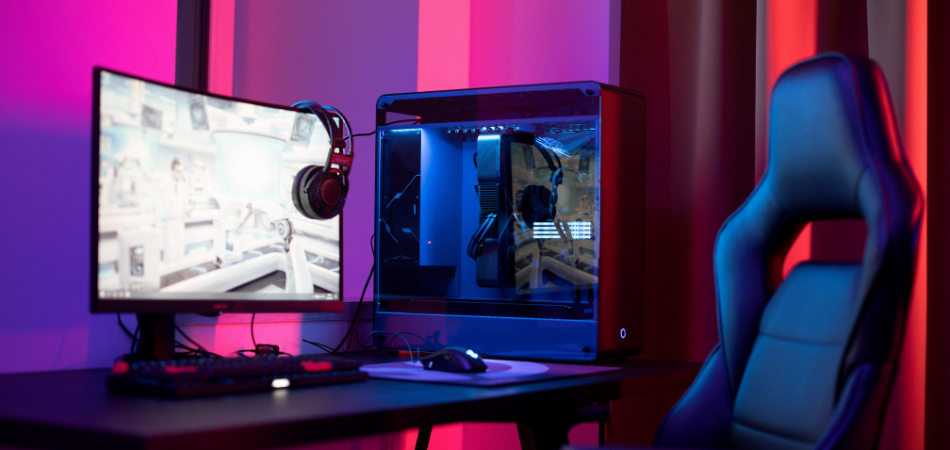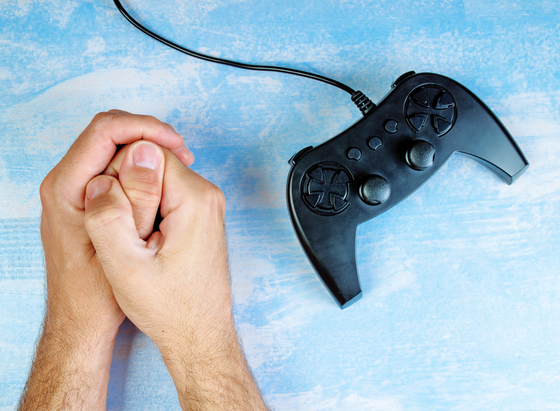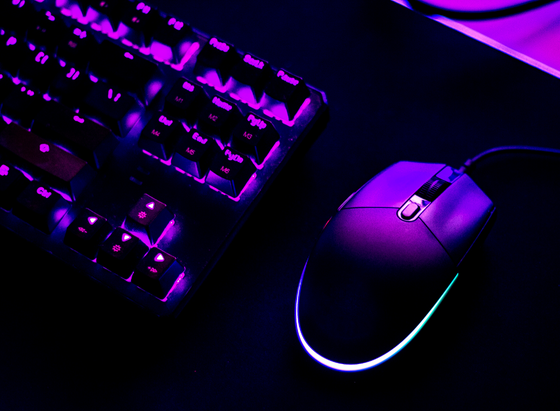Gaming addiction
Throughout their history, computer games have been demonised for everything from childhood obesity to ADHD. While much of the hysteria has been totally unfounded, and in fact, gaming has proven to have various benefits such as stress relief and improved problem-solving skills, there is one area where the concern is very real: gaming addiction. Gaming addiction is a real and growing problem, with gamers spending hours upon hours in front of their screens, often to the detriment of their social lives, work commitments, relationships and physical health.
What is gaming addiction?
Gaming addiction is characterised by an obsession with games to the point where it interferes with other areas of life. It was officially classified by the World Health Organisation as a mental health disorder in 2018 and is one of the fastest-growing behavioural addiction issues worldwide.
It is important to understand that many people enjoy playing games and that, in itself, is not a problem. The line between healthy gaming and addiction is crossed when games start to take over your life to the point where you are unable to stick to commitments, neglect important relationships or forgo work or study commitments in order to play.
People who are addicted to gaming will often forgo sleep, food and socialising in order to compulsively play games, despite the negative impact it has on their lives. These effects can include:
- Poor school or work performance as a result of gaming instead of studying or working
- Disruption to sleeping patterns due to staying up all night playing games
- Isolation from friends and family members in favour of gaming
- Strained relationships due to the concern of loved ones or because you neglect relationships due to your gaming
- Financial problems caused by buying new games, in-game purchases or neglecting work to play
- Physical health issues such as carpal tunnel syndrome, weight loss, obesity and migraines
- Mental health issues caused by the stress of gaming addiction such as anxiety, loneliness and depression
According to Game Quitters, gaming addiction mostly affects young men, with 94% of people addicted to gaming male and 38% aged between 18 and 34 years old. However, it is important to note that women and older people can also develop gaming addiction problems.
How do people become addicted to gaming?
There are many different routes to developing a gaming addiction. For some people, it may start as a casual hobby that you gradually begin to commit increased amounts of time and energy to. For others, it may be linked to underlying mental health issues such as anxiety or depression, with gaming providing an escape from difficult feelings or emotions.
As you start to play more and more, you may find that you need to spend increasing amounts of time gaming in order to feel the same sense of enjoyment. You may start to cut back on other activities that you used to enjoy, such as socialising with friends or going out, in order to spend more time playing. Before long, gaming starts to take over your life and you will not be able to stop without professional help.
Who is most at risk of becoming addicted to gaming?
There are a number of risk factors that can make you more susceptible to developing a gaming addiction. The people most likely to become addicted to playing video games include:
Young men: Gaming addiction is most common in young men. The reason for this is mainly that more young men play computer games than any other demographic, likely due to the fact that most video games are marketed towards this group.
People with mental health issues: If you have underlying mental health issues such as anxiety or depression, you may be more likely to develop a gaming addiction because gaming can provide an escape from difficult feelings or emotions.
People who are socially isolated: If you don’t have many friends or you don’t socialise often, you may be more likely to turn to gaming as a way to cope with feelings of loneliness or isolation or to socialise with other gamers online.
Am I addicted to gaming?
Gaming addiction is difficult to detect due to the popularity and social acceptability of playing computer games. This can make it very easy for your gaming addiction to convince you and your loved ones that there is nothing wrong.
If you are worried that you or someone you know may be addicted to gaming, there are a few key questions that you can ask yourself:
- Do I spend more time playing games than I do on other activities that I used to enjoy?
- Do I neglect work, study or important relationships in order to play games?
- Do I get irritable or anxious when I try to cut down on the amount of time I spend playing games?
- Do I play games in order to escape from problems or difficult feelings?
- Has my gaming led to any financial, work-related, relationship or health problems?
If you have answered yes to any of these questions, it is important to seek professional help as soon as possible. At Sanctuary Lodge, we have a team of experienced addiction counsellors who can help you to overcome your gaming addiction and get your life back on track. Contact us today for more information.
Lies your gaming addiction will tell you
Gaming addiction does not want you to seek help or even admit that you need it. Your addiction will try to tell you a number of lies in order to keep you hooked, including:
“Playing computer games is not a real addiction”
One common lie your gaming addiction will try to tell you is that you cannot be addicted to gaming because it is legal or because everyone does it. However, just because something is legal or socially acceptable does not mean that it is not addictive. Gaming addiction is a real and serious addiction that can have a devastating impact on your life.
“You don’t have a problem, you can stop anytime”
Another lie that your gaming addiction will tell you is that you are in control and that you can stop gaming whenever you want to. However, if this was true, you would likely not be reading this page and would have stopped gaming when it began to cause problems in your life.
“You are too old to be addicted to gaming”
Your addiction will also try to tell you that gaming addiction is something that only affects children or young people. However, this is not the case. People of any age can be addicted to gaming, with the effects for older gamers often more serious as they have more disposable income and free time to spend on their addiction.
How is gaming addiction treated?
Effective treatment for addiction to gaming involves two main stages; inpatient rehab and aftercare.
Gaming rehab
Gaming rehab is the first stage of treatment and involves you staying in a specialist addiction treatment centre like Sanctuary Lodge for a period of time. During your stay, you will receive 24-hour care from a team of gaming addiction experts who will help you to understand the root causes of your addiction and to develop the skills and techniques you need to overcome it.
While there may be outpatient gaming addiction treatment available, you may find it less effective than staying in a residential gaming addiction recovery centre. This is because it is much harder to stick to your treatment plan when you are at home and surrounded by triggers for your addiction.
At Sanctuary Lodge, some of the therapies and other treatment approaches we provide in our gaming addiction treatment programmes are:
- One-to-one therapy
- Group therapy
- Cognitive behavioural therapy (CBT)
- Family therapy
- Yoga therapy
- Art therapy and other creative therapies
- Meditation techniques
These are all designed to help you to overcome your gaming addiction and to develop a healthier, more balanced lifestyle. They will also help to prevent relapse as you will learn new coping mechanisms and stress management techniques for when cravings arise.
Gaming addiction aftercare
Aftercare is the second stage of treatment and involves you receiving ongoing support after you leave Sanctuary Lodge. This involves weekly group therapy sessions where you can share your experiences with other people who are in recovery as well as receive and give support to each other.
Are you addicted to gaming but ready to make a change in your life? Get in touch with Sanctuary Lodge today for expert gaming addiction help. Our team will help you to overcome your addiction and get your life back on track.







